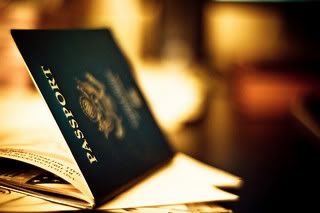It was just after dark. I had parked my rental car at the local Mormon church so that I could talk on the cell phone with my husband back in West Virginia. I wanted to share with him my house-hunting efforts in Kansas. I was mid-sentence when someone pointed a flashlight at me through the driver’s side window. I shielded my eyes from the light. Squinting, I saw a mature gentleman—tall and thin, sporting a baseball cap, glasses, jean jacket, and plaid shirt. I rolled down my window and sheepishly bid him “Good evening.” He then began to interrogate me subtly, trying to determine if I had a legitimate reason for being on church property.
This interrogation happened during conference weekend of 2008. I was spending the better part of three days scouring the west side of Wichita on a mission to find a new home. Because all roads lead to BYU, we already knew one family of Wichitans: Russell , Melissa and their four girls, whose ages are sprinkled near the ages of our two children. Russell had kept in contact with my husband, Michael, whom he knew from when they both wrote for the off-campus newspaper, Student Review. While considering neighborhoods in Wichita, I assumed that Melissa’s value system was similar to mine, so why not look for a house in the same boundaries as their ward and their elementary school?
Melissa was very kind to include me at her dinner table each night, but I would leave their home in the late evening in order to give the family space to manage their bedtime routine. Because they live on the same street as the church, I would drive over there after dark and spend about an hour on the cell phone discussing the day’s events with Michael while sitting in my rental car. Now I found myself face-to-face with Dale, a member of the ward who lived with his wife in the first house just north of the church. He had an unofficial calling to investigate suspicious activity in the parking lot.
“Oh, hello. My name is Karen Austin. I’m staying with Russell and Melissa up the road. My family might move here this summer. “ That should have been enough to satisfy Dale. However, I felt an urgency to prove to him that I was connected to him as a Mormon, a member of his tribe, someone deeply acculturated, a person whom he could trust. I needed to show him some kind of verbal passport. I was surprised to find myself offering additional evidence of my Mormon-ness. “Yes, my husband and I went to BYU. I went to Jerusalem on Study Abroad as led by Victor Ludlow. I was born in American Fork.” He then shared his own connections to Utah, where he owns a second home.
I continued, “You know, I’m fifth generation Mormon on all four lines. I’m related to Ephraim Hanks, scout for Brigham Young and founder of Hanksville, Utah. “ I began talking more rapidly, throwing in as many Mormon-coded phrases as possible: “Pioneer Day! Nauvoo! M-Men & Gleaners! Kolob!” I was hoping that these tribal markers would convince Dale that there was no need to call on Danites, three Nephites or even just some hearty members of the Lord’s Moving Company to help evict me from the property.
As all these words tumbled out of my mouth, Dale’s shoulders relaxed, and he smiled. I escaped the fate of those outsiders seeking to join the army of the Gileadites, those who could not pronounce “shibboleth” as requested (Judges 12:6). After Dale walked away from my rental car, I finally saw the humor in my desperate attempts to use Mormon code words. Perhaps I should have just presented my temple recommend.
I recall a less intense moments of tribal recognition. Every time I hear a reality television contestant say things like “Oh my heck,” I smugly applaud myself for being acculturated enough to break the code. Sometimes these moments of recognition happen in person. My son had been seeing a pediatric endocrinologist from Morgantown for three years before we realized that he was also Mormon. We discovered the connection because my son was singing “Reverently, Quietly” in the examination room. The doctor asked, “That’s a good song, Porter. Where did you learn it?” Making that connection brought a little more warmth to the doctor-patient relationship.
There are millions of people in the world, so we use language and other markers to identify ourselves as members of a specific culture or subculture. I feel the world grow a little smaller when these language markers turn strangers into kin.
Have you ever wondered if someone was Mormon by the way they dressed, talked, decorated their home, or prepared food? Did you ever confirm your hunch by asking? Have you ever been miscued and incorrectly assumed someone was Mormon? Has a stranger ever asked you, “Are you LDS?” And what prompted them to do so?
Related posts:
Continue reading at the original source →




